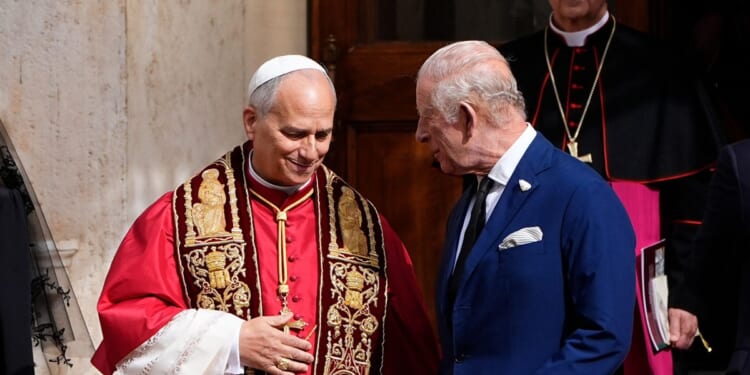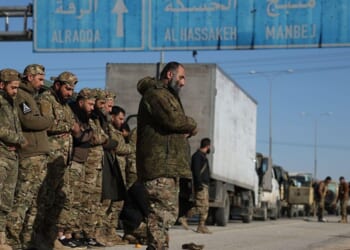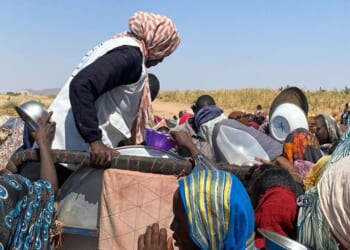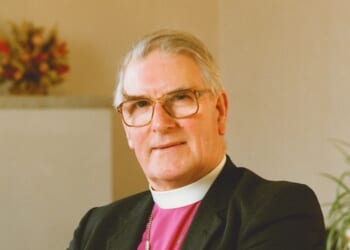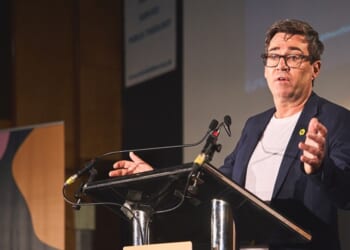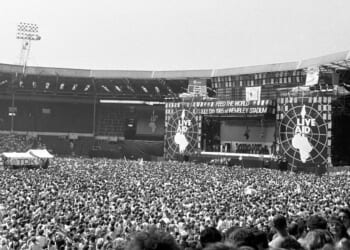POPE LEO XIV has been hard to read. Pope Francis signalled his theology boldly, even flamboyantly. His successor has been altogether more guarded; but, six months into his pontificate, we are finally beginning to get an idea of his papal agenda.
The early semiotics were subdued. “Peace be with you all” were his first words from the balcony, and Vaticanologists predicted a ministry of reconciliation and unity. There were hints of a more conservative approach in his traditional papal vestments and his authorising of Cardinal Raymond Burke to celebrate a pontifical mass in Latin. There was a cordial meeting with the head of Opus Dei, Mgr Fernando Ocáriz, in which Leo “listened with great interest” to an explanation of the structure of the controversial movement.
But the first state visit to the Vatican by an English monarch since the Reformation this week looked forward, not backwards, as the Pope and the King broke precedent by praying together. Their theme was the care of creation. Leo recently blessed a block of ancient glacier ice during a conference to mark the tenth anniversary of Francis’s pioneering encyclical Laudato Si’. The ice melted, but Leo called for a “true ecological conversion” from words to action. Hundreds of Catholic organisations have now disinvested from fossil fuels.
Then, this month, Pope Leo published his first teaching document, Dilexi Te (“I have loved you”) (News, 17 October). True, it was begun by Pope Francis before his death, but a close reading of the text reveals something of Leo’s papal character.
Its theme is classic Pope Francis: concern for the poor is not optional, but is integral to what it means to be Christian. Pope Leo goes out of his way to spell out in great detail that this is not a position rooted only in the Argentinian pope’s experience of Latin American poverty. Rather, it has been a constant thread in church teaching since the admonitions of Amos, Isaiah, and the other prophets. He recalls that Jesus’s parents sacrificed a pair of turtle doves in the Temple, the Levitical offering of the poor.
Leo reads, exhaustively, the history of Christianity through the lens of care for the poor — from the Old Testament to the social teaching of every pope between John XXIII and Francis.
What feels characteristically Leonine is the extensive section on the church Fathers, most prominently on St Augustine, in whose theology the new Pope was formed. Patristic theology is full of excoriating judgements that suggest that the wealthy are damned if they do not understand the lesson of Lazarus at the rich man’s gate. The sin of omission can be mortal, too.
Some justify turning a blind eye to the poor by saying: “Our task is to pray and teach sound doctrine,” Leo writes. They say: “It is the government’s job to care for them, or that . . . a free market economy will automatically solve the problem of poverty.” Like Francis, he takes a swipe at trickle-down economics.
Caring for the poor is fundamental to the Church’s mission. Pope Leo catalogues countless religious orders, from the mendicants to Mother Teresa, who have served the poor in different ways during the past two millennia — and rebukes those who have focused on elites rather than the most vulnerable (not good news, one suspects, for Opus Dei). “We have to state, without mincing words, that there is an inseparable bond between our faith and the poor.”
The poor are not just people to be helped, he says, citing St Augustine, “but the sacramental presence of the Lord”. Leo adds: “I often wonder, even though the teaching of sacred scripture is so clear about the poor, why many people continue to think that they can safely disregard the poor. . . In every rejected migrant, it is Christ himself who knocks at the door.”
Our globalised economy has exacerbated the “dramatic imbalances” of inequality. A wealthy elite live “in a bubble of comfort and luxury, almost in another world”, while poverty takes more and more forms: lack of material goods, of voice, of rights, of inclusion, and of freedom.
Having served in Peru for many years, he approves of the ecclesial discernment of the Latin American bishops, from Medellín to Aparecida, who demanded that the Church confront the “structures of sin” which enslave the poor. But Leo is no liberation theologian. He insists on the importance of almsgiving. “It will not solve the problem of world poverty,” but it will “touch and soften our hardened hearts”.
Leo XIV may lack the ostentatious humility of his predecessor; but he appears to be travelling in the same direction. He may be the first pope from the United States, but he has the heart of a missionary from Peru.

